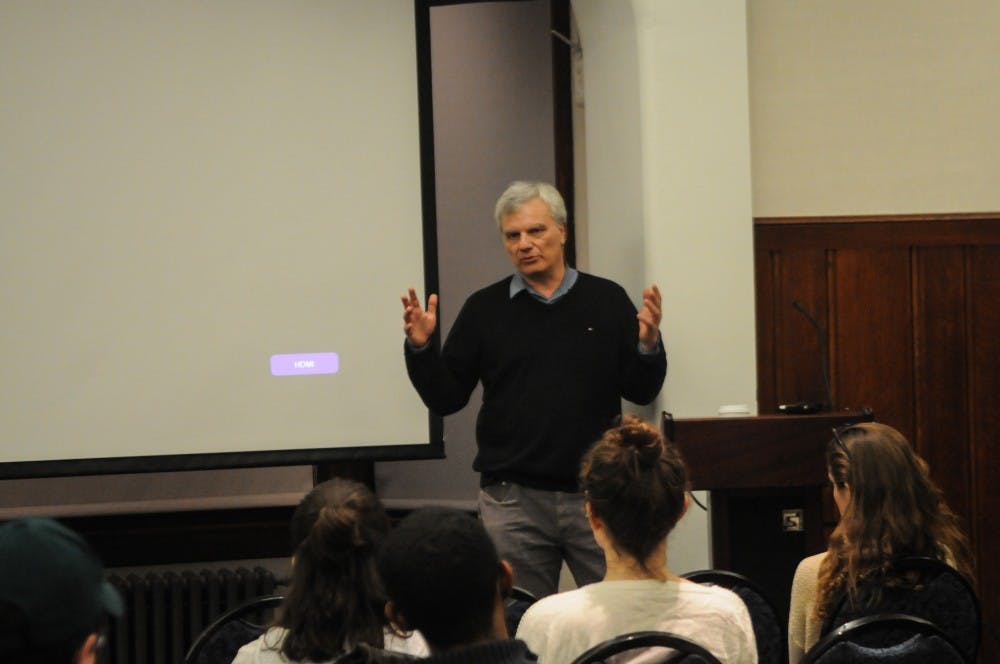
Photo: Morgan Rees / The Daily Pennsylvanian
Credit: Morgan Rees“Imagine in a few decades, Houston Hall being demolished to make way for the Trump Presidential Library. It’ll be interesting to see if Penn ends up vying for [the library],” journalist Peter Canellos said to a room full of Democrats in Houston Hall.
Canellos, a 1984 Penn graduate and former executive editor of Politico, spoke at Penn Wednesday night at an event hosted by the Penn Democrats to discuss the political climate after the presidential election. He is transitioning towards becoming Politico’s editor-at-large in order to work on broader issues across the country, not just in Washington D.C., he said. His talk was largely focused on President-elect Donald Trump, a 1968 Wharton graduate.
Canellos, who holds a degree in American history from Penn, served as the executive editor of The Daily Pennsylvanian. He reflected back on his time at Penn and the state of politics during his college years.
“Ronald Reagan ran for president when I was at Penn, so all of the political groups on campus just debated supply-side economics for an entire election season,” Canellos joked.
Canellos worked at the Boston Globe in a number of positions over a 26-year period. Canellos was the Globe’s Metro editor for a number of years, including in 2002, when the newspaper broke its award-winning coverage about child sex abuse committed by a number of Roman Catholic priests, documented in the 2015 film ”Spotlight.”
After working for more than two decades at the Globe, Canellos decided he wanted to work for a more digital media-focused organization. He argued that traditional newspapers, like The Boston Globe or The Washington Post, need to work harder on improving their online coverage to remain competitive in the industry.
The conversation was centered around the current state of media and how political coverage has changed in the past few years.
Canellos also talked at length about the connection between media and politics, especially when it came to the 2016 presidential election. During his talk, Canellos discussed his interest in learning more about how political coverage played a role in determining the outcome of the election.
“I want to see how many counties that voted overwhelmingly for Trump had nonpartisan newspapers. Probably not that many,” Canellos said.
Canellos took a strong stance against recent “fake news” spread on social media, which analysts claim played a huge role in the Nov. 8 election.
“Fake news is the biggest threat to journalistic integrity. We have to stop its growth at all costs,” he said.
The Daily Pennsylvanian is an independent, student-run newspaper. Please consider making a donation to support the coverage that shapes the University. Your generosity ensures a future of strong journalism at Penn.
Donate



